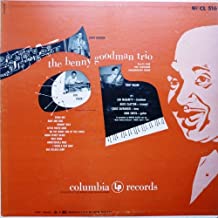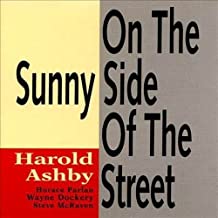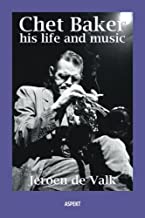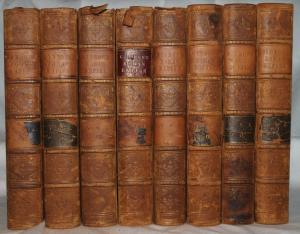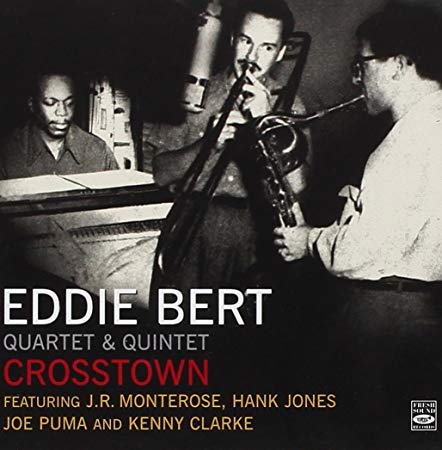-
Posts
13,205 -
Joined
-
Last visited
-
Donations
0.00 USD
Content Type
Profiles
Forums
Events
Blogs
Everything posted by Larry Kart
-
Previous posts from this "messenger" (not that I have them on file, but I do recall their general nature/slant) suggest that he agrees with the sentiment on the jacket. I told him publically, and in terms that made my point clear, because PMs in the past have had no effect on him. Further, it is a political statement, no? And those are forbidden on Organissimo, as this poster knows full well -- as does everyone else here, I assume.
-
First, I was responding to a complaint from another board member who found the image political and offensive (I agreed, and such images are forbidden here). Second, by leaving the image as posted for all to see, I would have allowed the poster to continue his forbidden and to some offensive behavior. As near as I can recall, the posted image was of the back of a person's denim jacket on which appeared the words (roughly -- I'm relying on memory): "If you don't like [or maybe it was "love"] America, I'll kick your ass." Nothing political about that, huh? Further, that poster has crossed the no-politics line a good many times before this. And why not tell him so in a public manner? In the past, PMs have not dissuaded him IIRC.
-
Think again. If there's anything in the image that can be taken that way -- and more than one board member, not counting me, did take it that way -- don't post it. When you did post it, what was your thinking? Did you think it was just an amusing slice of contemporary Americana? What?
-
I decided that my"Stringing the Blues" box would be enough. Probably would feel otherwise today.
-
erwbol -- you've done it again. Your post has been deleted. Do you not want to be here anymore, or what?
-
Bryant was on tenor on the track I heard, and the time feel wasn't boogaloo-like. I sampled every Bryant track on YouTube, and it wasn't one of those. Though "Lou-Lou" came close, Bryant was a fair bit more jazz-like on the track I heard, almost like Jaws at times.
-
Caught a Bryant track on the radio today. It was SO good - soulful as heck and really inventive. Sadly, didn't catch the title of the name of the album. Nice guitar solo too, maybe Billy Butler.
-
Back in seventh grade in 1955. Lured by the big name of Goodman and the idea that it memorialized a big occasion, I was rather disappointed in the album at the time. In fact, it took me a long while before I got into Goodman's music at all.
-
Deeply indebted to Ben Webster (with a bit of Lockjaw stirred in), Ashby was yet his own man and a subtle, thinking, swinging player with, a la Ben, a rare gift for intimacy. This is a nice one, with Horace Parlan, Wayne Dockery, and drummer Steve McRaven, who's a bit to happy with the accents from time to time, but no matter. You'll be, or should be, pleased by how personally Ashby phrases familiar tunes like "Satin Doll," "There Is No Greater Love," and "These Foolish Things."
-
Saul Bellow's novella "The Bellarosa Connection" and his longish short story "The Old System," both from his "Collected Stories." Remarkable though it is in large part, the former perhaps falters at the very end (or perhaps it just fails to wholly satisfy me, and/or I don't yet get the novella's final narrative flourishes); the latter, less flamboyant and seductive than "Bellarosa," is remarkable throughout. It may not be Bellow's primary focus in his work in general or even in these two works, but I'm bowled over in both by his insights into what one might call "the American Spirit" in its various manifestations. This he illuminates by zeroing in on specific Jewish immigrants to America and/or on the sons and daughters of that immigrant generation, roughly the one that arrived around or just before the turn of the century and came of age in the mid-teens or 1920s (and then zeroing in on their offspring and their offsprings offspring) and noting with great and seemingly offhand precision how who they become is shaped by their transactions with the American spirit as it was unavoidably manifested in their lives and times. This somewhat oblique approach to the subject (though it certainly was not oblique to Bellow -- think "Augie March," nor is it oblique to third-generation me -- serves to illuminate vital turbulent matters that all Americans are in contact with, even subject to, all the time with an intensity that I find in few other writers of Bellow's time or any writers since. Sorry, I can't summarize those insights, though I would like to -- one has to take them in through the voices of Bellow's narrators -- whose key roles in Bellow's fiction can never be forgotten, even when they seemingly remain more or less offstage or are sotto voce for good stretches of time, just relating/remembering the flow of events to which they themselves are subject to in their own ways.
-
I got a Tag Heuer about 8 years ago (ladies model -- not that you could tell -- to fit my small wrist). Looks good to me.
-
From the book. "The door to his room was locked from the inside. The police ruled out foul play. There was no sign of a struggle. And there was the distinct imprint of his trousers in the dust on the sill, which would have been smeared had Chet been pushed from the window. He had lain or sat there [on the sill] for some time, probably nodding out, his head between his knees -- then either fell or jumped. A 'murderer' [would have to} have entered the room from the outside, thrown his victim onto the street and left through the window as well, all this without leaving a trace in the room and right in front of Amsterdam's busiest railway station. Inspector Bloos (the man who investigated the case): "The window could be held up with a metal peg that had to be stuck in the window frame. To keep this peg from getting lost, it was fastened to the wall with a small chain, It is very likely that, while losing his balance, Chet grabbed the chain. The peg with a part of the broken chain was found beside him on the street. The window fell shut.... Baker feel on a stone post with the back of his head."
-
Excellent, and a corrective to James Gavin's trashy, inaccurate "Deep in a Dream." For one, Chet was not murdered; he fell from his Amsterdam hotel room to the sidewalk all by himself. For another, Chet, while erratic, arguably did his best playing in the latter years of his life, as many recordings bear out. Also, in that mostly European phase of his career, Chet fairly often was making a good deal of money -- e.g $25,000/month in his final two years -- but of course the money was all spent on the "lifestyle."
-

Old Chet Baker review
Larry Kart replied to Larry Kart's topic in Jazz In Print - Periodicals, Books, Newspapers, etc...
I also caught Chet in Chicago about that time with Phil Markowitz, who was in excellent form. Pretty sure I reviewed that performance, but I can find it via the Internet. -
Decline and Fall of the Roman Empire (1828 edition); eight volumes for $40, purchased about 30 years ago (same edition in similar shape goes for about $500 now). Leather boards are in about the condition in the image below, bindings intact. The layout of type on the page is ideal. Gibbon is an immensely entertaining writer. Has the bookplate of Harry Dupuis, a star cricketeer at Cambridge. www.worthpoint.com:.webloc
-
Reading the revised/expanded edition of Jeroen De Valk's excellent Chet Baker biography (James Gavin, author of the tawdry, inaccurate Baker bio "Deep in a Dream" should be embarrassed) reminded me that once upon a time (mid-'80s I think) I reviewed a Chicago engagement by Baker. I looked it up, and here it is: Larry Kart, Entertainment writerCHICAGO TRIBUNE If the jazz musician`s job is to make up melodies better than the ones he started with, trumpeter Chet Baker often goes further than that, beginning at a level of paraphrase that is so tenuously but gracefully linked to his tune of choice that it can be difficult to recognize his source material. A fine example--no, make that a magnificent one--of what Baker can do was his performance Tuesday night of ''My Funny Valentine,'' which has been his signature song ever since he recorded it some 30 years ago with Gerry Mulligan. From the first, Baker was improvising all out, but not in the sense that his lines violated the character of Rodgers and Hart`s romantically bittersweet composition. Instead, by removing all but the most essential notes and coloring those that remained with his uniquely plaintive tone, Baker recast the song`s wistful tenderness in near-tragic terms. Then, as if that weren`t enough, Baker followed his trumpet odyssey with a vocal chorus that was no less of a magical mystery tour. And that may have been an even more difficult feat, because the presence of words called upon Baker to reshape not just the notes but the verbal sense as well. That performance was the highlight of a set that began rather ominously, with Baker`s bassist and drummer delayed at the airport and his regular pianist still in transit from Belgium. But Baker and substitute pianist Dennis Luxian decided to carry on by themselves, managing quite handsomely until bassist Dennis Irwin and drummer Leo Mitchell arrived. ''How Deep Is the Ocean'' was a particular gem, with Baker`s dulcet solo recalling his statement that ''my dream horn would be the kind I didn`t have to blow in--just press the valves and the music comes out.'' That`s almost the way it sounds, and there are definite advantages to Baker`s approach. For one thing it allows him to put so much breath into his tone that the line between singing and playing is almost erased, and each note can be colored individually. There is, in other words, a constant sense of touch to Baker`s music. And, unfailingly, it reaches out to touch the soul.
-

Rachmaninoff Symphony No. 3 - Recommend, Please
Larry Kart replied to JSngry's topic in Classical Discussion
-
Was listening today to Bert's 1954 or '55 Savoy album "Musician of the Year," which makes up the first seven tracks of the two-CD compilation below; on the compilation's remaining tracks, which I haven't heard, Joe Puma and JR Monterose are added, and how bad can that be. In any case, "Musician of the Year" is a gem. Bert is one of the best somewhat Lester Young-influenced trombonists who came up in the late '30s/early '40s -- some others might be Earl Swope, Jimmy Knepper, and Willie Dennis -- and I've never heard Bert in better form. Rhythm section is Hank Jones, Wendell Marshall and Kenny Clarke, fine RVG sound. A nice, albeit tricky touch is that on most tracks Bert is multi-tracked on the "in" and "out" choruses for a Jay & Kai-like effect, which he handles with ease; and he usually solos twice on most tracks, e,g, once on open horn, once muted, to further the two-trombone effect. What a fine lyrical, swinging player Bert was, and an individual one too -- I can usually tell it's a Bert solo in just a few notes.
-

Charles Lloyd Quartet - Swiss Radio Days Jazz 46
Larry Kart replied to mjzee's topic in New Releases
Nonsense. The problems I have with Lloyd's playing on that album have only to do with Lloyd's playing on that album. And I could make a list of non-Chicago musicians I favor that might turn out to be the longest post in the history of Organissimo. -

Charles Lloyd Quartet - Swiss Radio Days Jazz 46
Larry Kart replied to mjzee's topic in New Releases
No much. But his playing here pretty much shocked me. Their version of "Mood Indigo" could have been titled "Moo-ed Indigo." -

Charles Lloyd Quartet - Swiss Radio Days Jazz 46
Larry Kart replied to mjzee's topic in New Releases
Picked up the Lloyd/Jason Moran ECM duo album at a library sale the other day. Just terrible. Lloyd sounds like he's playing a leaky stovepipe, Moran does the best he can. -
VPI -- I've had mine for at least 20 years, and it's paid for itself many times over, especially if you buy used LPs.
-

What Classical Music Are You Listening To?
Larry Kart replied to StarThrower's topic in Classical Discussion
Actually everything on that record is top-drawer. There's a good deal of her work available on CD, but much of it is fairly pricey. I caight some of her Rachmaninov preludes -- superb. A review:of the Liszt etc. disc: http://www.musicweb-international.com/classrev/2015/Feb/Gornostaeva_piano_1012.htm -

What Classical Music Are You Listening To?
Larry Kart replied to StarThrower's topic in Classical Discussion
-
I much prefer Feltsman, for one: Or for that matter (no kidding) John Lewis:
_forumlogo.png.a607ef20a6e0c299ab2aa6443aa1f32e.png)

